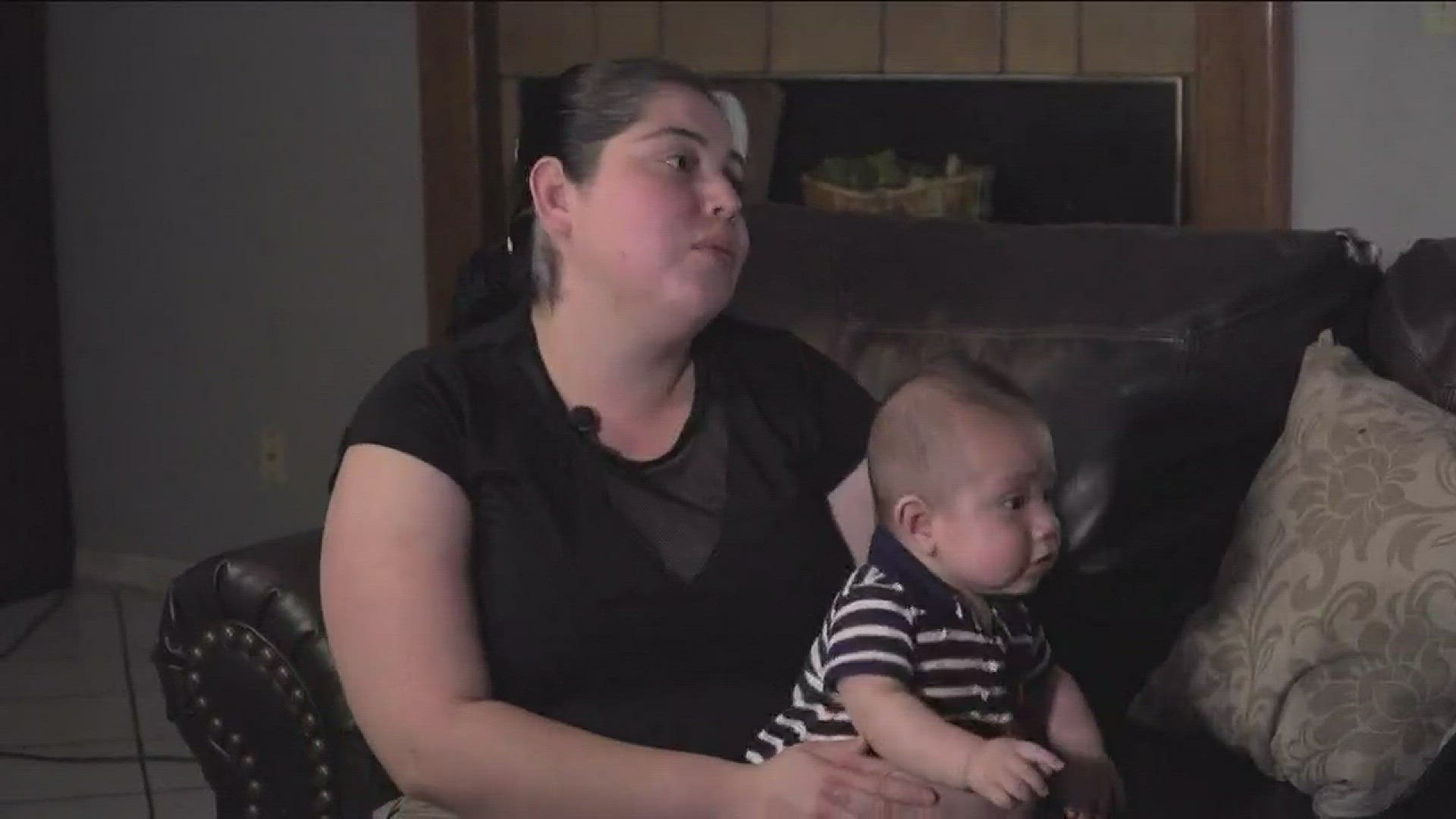Dr. Shinjiro Hirose admits, it sounds like something out of a science fiction novel: fetal surgery.
It's a relatively new procedure that allows doctors to operate on an unborn baby.
Hirose works at UC Davis Children's Hospital, where he performed the center's first fetal surgery in Nov. 2016, on a woman named Estella Mendoza and her unborn baby boy, Alex.
The results of that surgery show the procedure can be life-changing.
With two perfectly normal pregnancies under her belt, Mendoza, of Solano County, assumed her third baby would arrive just the same.
Last fall, however, she received a scary diagnosis.
Her unborn baby boy had spina bifida.
"I started crying. I didn't know what to do," Mendoza recounted to ABC10 News.
Spina bifida is a birth defect in which an unborn baby's spinal cord fails to properly develop. A baby born with spina bifida may have brain damage, be unable to ever walk and have little to no control over their bladder and bowels.
Fortunately for Mendoza, Dr. Hirose and his team at UC Davis Children's Hospital had recently launched a fetal surgery program, and Mendonza qualified.
"The hope is that things will be better than expected," Hirose explained.
"I was scared, like, because they told me that maybe he would be born premature and most likely babies would die because they were born too early," Mendoza said.
It was a risk she wanted to take, putting the life of her unborn baby in Hirose's and his team's hands.
Hirose performed the fetal surgery in November, a procedure that's nothing short of amazing modern medicine.
"We open the mother's abdomen. We open her uterus partially, and we try to expose as little of the fetus as possible, so we don't take the fetus all the way out," Hirose explained.
Doctors "operate and then put him or her back in," Hirose continued. "We just really take out or reveal the part of the fetus we need to operate on."
Mendoza's surgery was a success! She gave birth to Alex 10 weeks later, just a month prematurely, by C-section. Her baby spent less than a week in the Neonatal Intensive Care Unit.
"Alex is actually doing very well," Hirose told ABC10.
He avoided brain damage, and while he needs a brace to straighten his legs, his prognosis is better because of the surgery.
"It is amazing to think that we can really help some of these unborn children with surgery and improve their outcomes afterwards," Hirose said.
Mendoza considers Alex a miracle and wants other pregnant women in her situation to know there's hope.
"It's extraordinarily gratifying, and it's very humbling to meet people like Estella," Hirose said. "It's really the patients that make this whole work worthwhile."
Donations, Hirose said, are what made little Alex's life-changing procedure possible, but more work is needed to further improve the surgery and babies' outcomes.
"Without donations, our research is impossible and we would never have these kind of new technologies and new procedures to be able to help kids," Hirose said.
Only a dozen locations nationwide offer this surgery. UC Davis Children's Hospital is one of them.
"They really took good care of me and my baby," Mendoza said.
Cognitively, little Alex is developing right on track. Doctors say it's still up in the air whether he'll be able to walk, and that's why they need donations. More research can improve that surgery and give an unborn child with spina bifida an even better chance at a healthy life.

